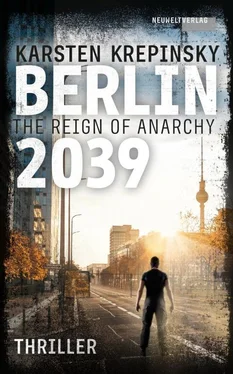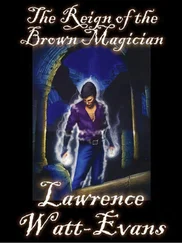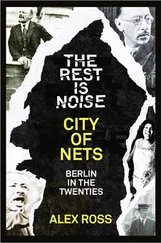Selim smiles. “So we have an understanding.”
“Now, spit it out. What did you want to tell me?”
Selim jams the tip of a dart into the desktop as hard as he can. “If the Templar carries on with his plan, there’ll be a disaster,” he whispers.
“What plan?”
“I didn’t see a connection between the murders at first. There was no reason to. But today, at sunrise, someone left a photo on the doorstep of my club. Cem found it.”
“What was on the photo?”
“I now know who’ll be the next victim.”
He has my full attention. “What the hell are you talking about?”
“Allah have mercy with us, if we fail to stop the Templar.” Selim produces a photo from the top drawer of his desk and studies it. “The choice of situations in which people agree to have their picture taken will always remain a mystery to me,” he pensively adds. “They don’t seem to waste a thought on the possibility that they might later be held accountable. That’s how proud they are of what they did. Bunch of idiots!” He passes me the photo. I have to force myself to stay calm, because I don’t want Selim to know how excited I am. Therefore, I try just to take a casual glance at the picture, as if I had more important things on my mind. It’s not easy, I can tell you. Quite difficult, actually. I almost lose control over my features. No wonder, considering what’s on the photo. I hold my breath. A group of fighters’s mugging for the camera with some kind of desert as a backdrop. Wide grins on their faces, they’re waving their Kalashnikovs in the air and seem to be having a great time. In the sand at their feet I can make out a number of butchered people. Their clothes are bloody. Their heads have been severed from their bodies. Limbs twisted in unnatural angles, they present a picture of desolation. The men in the group seem to be overjoyed about the massacre they must have just committed.
I recognize:
Tarek Bansuri.
Abdul Bansuri.
Yussuf Bansuri.
Ramsan Alchanov.
The four victims of the roof-runner, or Templar as the Turks call him.
Next to Ramsan Alchanov there’s a man wearing a balaclava. I can’t tell who it is. His hand holds a butcher knife, smeared with blood. And in the right-hand corner of the picture, proudly displaying the flag of the Islamic State, a sixth man is posing for the camera. My throat constricts. Even though the guy on the photo has aged a lot, I still see at first glance that it is Ali Bansuri. The venerable Imam himself, triumphantly striking a pose behind his beheaded victims, flanked by his brethren in faith. Without shades, but already sporting his long beard, he exudes middle-aged virility.
When I was a boy I went to collect Burgundy snails one day. It had just rained and they came crawling out from under the hedges, which made it easy to pluck them off the paved path. I delivered them to the woman who made a business of selling them. When I handed over my plastic bag full of snails, she gave me ten Euros—our currency until fifteen years ago, just in case you’ve forgotten. Anyway, it was a lot of money for a child in those days. The woman dumped the snails with their fellows waiting in crates in the yard, ready to be shipped off. For a long time I just stood, watching the snails, squashed shell against shell inside these wooden crates, trying to wiggle their slimy bodies through the slats. Hundreds of them, squeezing their heads through the gaps, while blindly searching around with their feelers. All they wanted was to escape from their wooden prisons. But it was hopeless, of course. Their calcium shells held them back, shelter and restraint in one.
The sad picture of the writhing bodies stayed with me for many years. Snails might not be the smartest creatures under the sun, but I still felt sorry for them. Exactly because their resources are so limited as compared to ours. I’m sure they never wanted to end up in somebody’s cooking pot. I didn’t bring the woman any more snails. The next half-full bag I just emptied into a ditch.
Like the snail, whose escape is prevented by its ornate calcium cell, something is also holding me down inside the Ghetto. It is a force that remains beyond my grasp. I’d have a chance to find happiness in the world out there. Maybe with Natasha even. But I can’t get the ’hood out of my system. As if the black soul of an utterly corrupted being had me in its clutches.
I’m just sitting here without knowing how I’ve spent the last couple of hours. Maybe it would be a good idea to start taking my meds again. Could Natasha get me a refill, I wonder? Phone in hand, I’m totally at a loss. Have I called her already to tell her that the Imam is next on the roof-runner’s list? His motive is revenge, directed against the Caliphate’s soldiers. This much is clear by now. The roof-runner wants someone to pay for the murders, committed by the Islamic State. Have I told Natasha that the Ghetto will drown in a deluge of blood? Have I told her anything of importance at all? Told her what I feel? I’m talking and talking without really saying anything. My phone rings. I stare at the screen. It’s Khalid, the Imam’s son. He invites me over to his penthouse on Alexanderplatz. He needs me to bring enough coke, to get his party going again. I pick myself up. Leaving my guns behind, I surf the next subway to Schillingstrasse. When I get there, I bribe the sheriffs, leave the station, and let the doorman in the foyer of Condominium 1 phone Khalid. I’m cleared to step into the elevator and take it up to the top floor. Humongous bodyguards frisk me and allow me access to their charge. The smell inside the penthouse is ripe. The pungent odor of vomit is wafting over from one of the bathrooms. I’d rather not know what it looks like inside. Stuffy used up air assaults my nostrils, the curtains are drawn. On the sofas, a few unclad fancy hookers are sleeping it off.
I push open the door leading to the outside and cross the roof garden belonging to the penthouse. Bikinis are floating in the Jacuzzi, empty champagne bottles adorn the tiles. Cigarettes have been squashed in the left-over drumsticks on the buffet. Khalid’s standing at the balustrade, looking out over P’Berg. He’s wearing a white sheet like a toga. When he notices me, he tilts his head to the side. “You’re late, Pusher,” he says, bored.
“Party’s over, right?”
“No, my friend. The party’s only getting started now.”
I put the pouch containing two hundred units on a table. Khalid smiles. “New fuel… very nice.”
“You know where your father is?” I ask.
Khalid turns away from me, bends over the balustrade, and aims a glob of mucus into the abyss. “I can make my snot fly seven-hundred feet now,” he gloats.
“If it doesn’t hit a window before,” I point out.
“Right.” Khalid gives a pensive nod. “You don’t get to choose your family,” he adds.
I come a step closer. “I wouldn’t know, I don’t have one.”
“Maybe… maybe it’s better sometimes.”
“No, it’s not. I swear.”
“What’s wrong?” he asks.
“Your father is in danger.”
“So?” A derisive laugh from Khalid. “What’s new?”
“It’s serious this time. Very serious.”
Khalid nods. “So what?”
“You’d better warn him.”
“Warn him? Of what? Who would be dumb enough to try to kill him?”
“And if the other guy happens to be a step ahead?”
Khalid waves me off. “My father’s a survival artist,” he dismisses my concern. He walks over to the buffet, plucks a cigarette butt from a drumstick, and holds it to the flame of an oil lamp to light it.
I follow him out, deeper into the roof garden. “How much do you know about your father’s past?” I ask him.
Читать дальше












